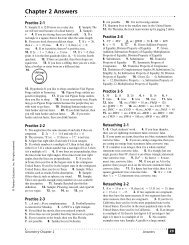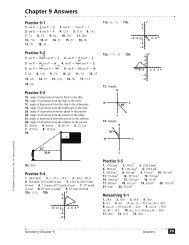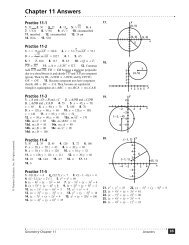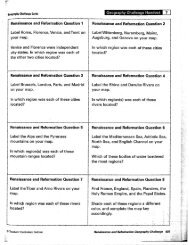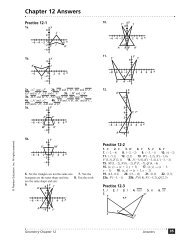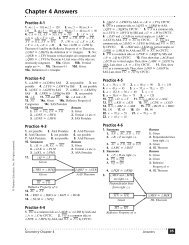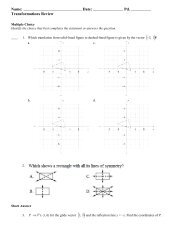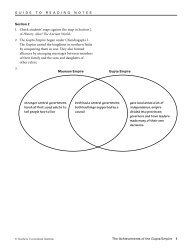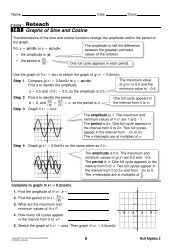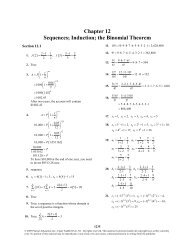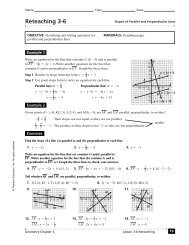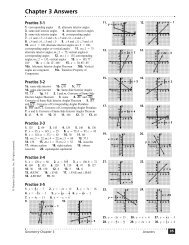High School Handbook - River Dell Regional School District
High School Handbook - River Dell Regional School District
High School Handbook - River Dell Regional School District
You also want an ePaper? Increase the reach of your titles
YUMPU automatically turns print PDFs into web optimized ePapers that Google loves.
Any pupil who shall cut, deface, or otherwise injure any schoolhouse, furniture, fences, outbuildings, or other property of the<br />
school shall be liable to suspension and punishment, and his/her parents or guardian shall be liable for damages to the<br />
amount of injury to be collected by the Board of Education in any court having jurisdiction, together with the costs of the action.<br />
Students eighteen years of age or older will be held responsible for the cost of damages as mentioned above.<br />
INSURANCE<br />
Accident insurance is available on a voluntary basis for a premium paid by your family. Insurance forms are available in the<br />
school business office early in the school year.<br />
A MODEL INTEGRATED PEST MANAGEMENT POLICY FOR NJ SCHOOLS<br />
The New Jersey <strong>School</strong> Integrated Pest Management Act of 2002 requires schools to implement a school integrated pest<br />
management policy.<br />
The law requires the superintendent of the school district, for each school in the district, the board of trustees of a charter<br />
school, and the principal or lead administrator of a private school, as appropriate, to implement Integrated Pest Management<br />
(IPM) procedures to control pests and minimize exposure of children, faculty, and staff to pesticides. <strong>River</strong> <strong>Dell</strong> <strong>High</strong> <strong>School</strong><br />
shall therefore develop and maintain an IPM plan as part of the school’s policy.<br />
Integrated pest management procedures in schools<br />
Implementation of IPM procedures will determine when to control pests and whether to use mechanical, physical, cultural,<br />
biological or chemical methods. Applying IPM principles prevents unacceptable levels of pest damage by the most economical<br />
means and with the least possible hazard to people, property, and the environment.<br />
Each school shall consider the full range of management options, including no action at all. Non-pesticide pest management<br />
methods are to be used whenever possible. The choice of using a pesticide shall be based on a review of all other available<br />
options and a determination that these options are not effective or not reasonable. When it is determined that a pesticide must<br />
be used, low impact pesticides and methods are preferred and shall be considered for use first.<br />
Development of IPM Plans<br />
The school IPM plan is a blueprint of how <strong>River</strong> <strong>Dell</strong> <strong>High</strong> <strong>School</strong> will manage pests through IPM methods. The school IPM<br />
plan states the school’s goals regarding the management of pests and the use of pesticides. It reflects the school’s sitespecific<br />
needs. The IPM plan shall provide a description of how each component of the school IPM policy will be implemented<br />
at the school. For Public schools, the Local <strong>School</strong> Board, in collaboration with the school building administrator (principal),<br />
shall be responsible for the development of the IPM plan for this school. For Charter schools and non-public schools, the<br />
development of the IPM plan shall be the responsibility of the Board of Trustees or the Principal or Lead Administrator.<br />
IPM Coordinator<br />
The <strong>River</strong> <strong>Dell</strong> Board of Education shall designate an integrated pest management coordinator, who is responsible for the<br />
implementation of the school integrated pest management policy.<br />
Education/Training<br />
The school community will be educated about potential pest problems and IPM methods used to achieve the pest<br />
management objectives.<br />
The IPM Coordinator, other school staff and pesticide applicators involved with implementation of the school IPM policy, will<br />
be trained in appropriate components of IPM as it pertains to the school environment.<br />
Students, parents/guardians will be provided information on this policy and instructed on how they can contribute to the<br />
success of the IPM program.<br />
Record Keeping<br />
Records of pesticide use shall be maintained on site to meet the requirements of the state regulatory agency and the school<br />
board.<br />
27



